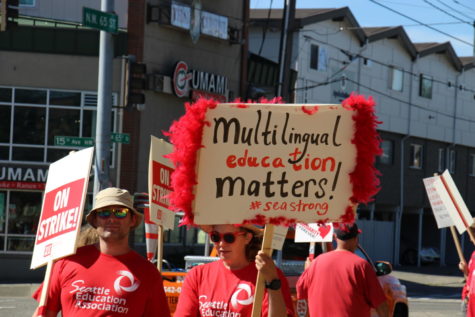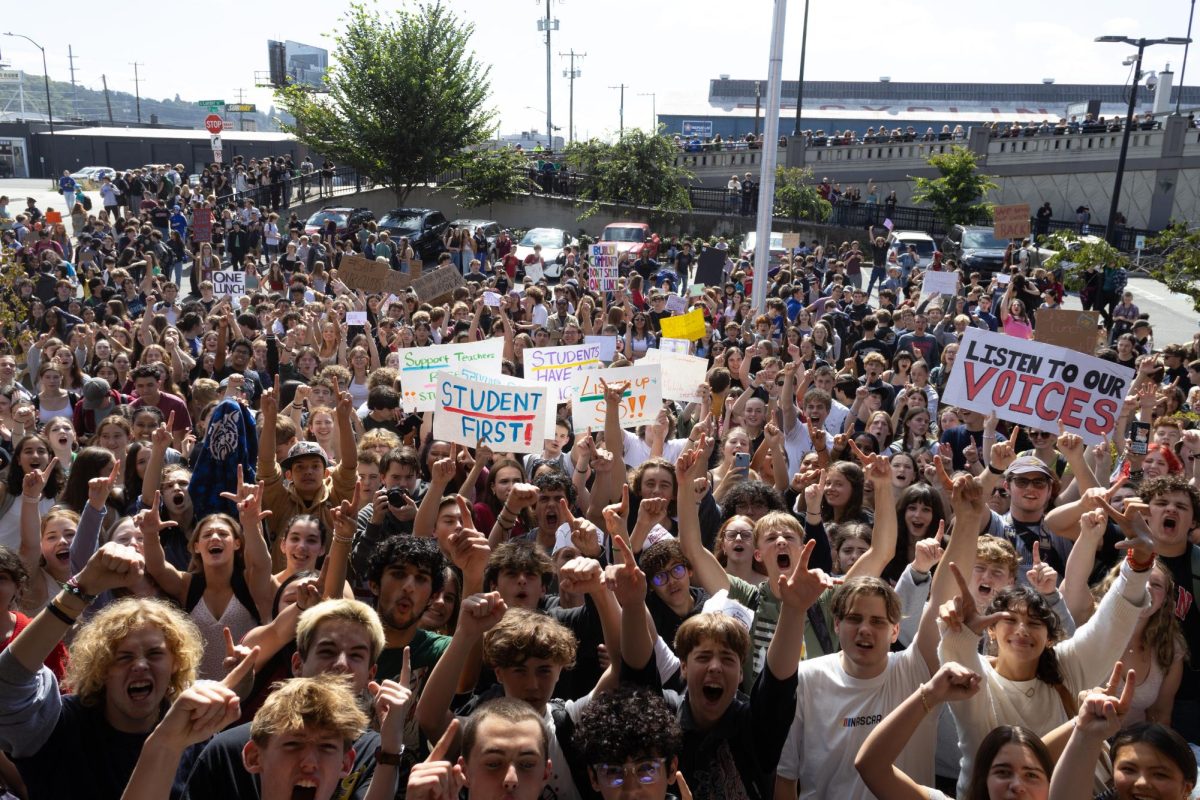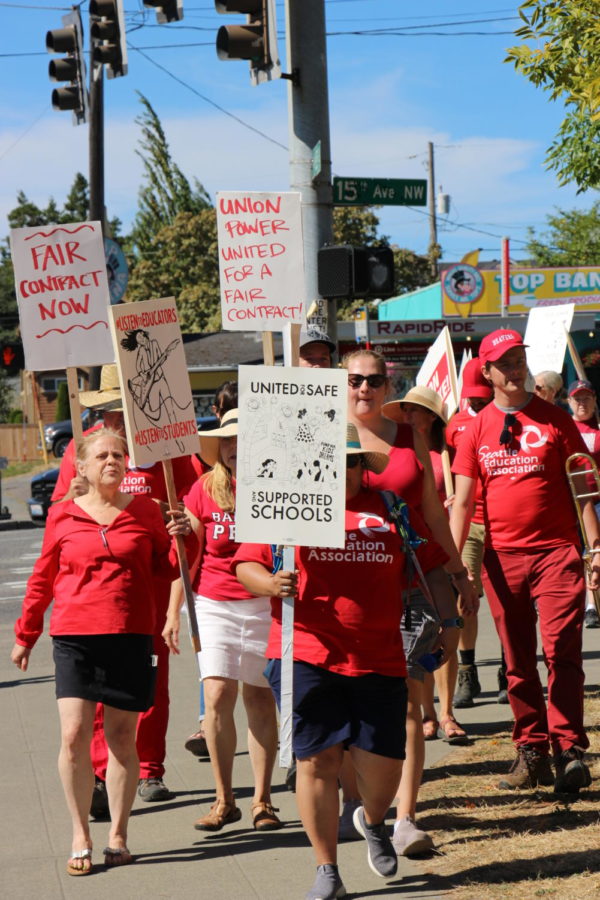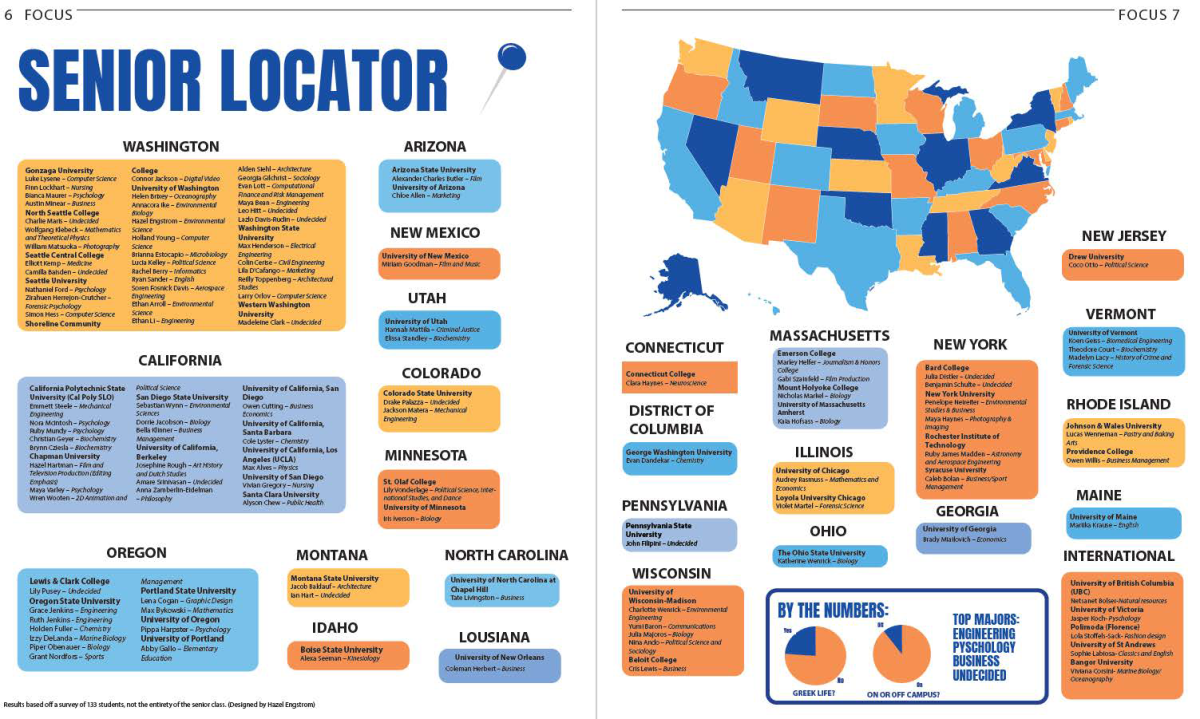SEA strike postpones the start of school
Staff members push for multilingual and special education resources in new contract
Ballard staff participate in recent SEA strike in hopes of improved multilingual and special education resources and improved staff wages.
October 13, 2022

As students across the United States returned to the classroom, SPS students waited to begin their school year. Rather than starting as planned, the first day of school was delayed by five days as district staff went on strike.
The Seattle Education Association, or SEA, organized the strike. Across the city, educators picketed outside of their school buildings after SPS and SEA failed to come to an agreement on the contract for the upcoming school year.
Though SEA focused on a variety of topics during contract negotiations, there were a handful of prominent issues that motivated the strike. David Furman, a Ballard union representative and special education teacher, described these concerns.
“SPS is proposing to cut the number of special education teachers and increase the workload on the teachers we currently have,” Furman said.
More specifically, the SEA demands dealt with student-teacher ratios in classrooms. As the SPS and SEA communities push to include special education students more in general education classrooms, the two groups had different approaches for doing so.
Originally, SPS was proposing to abandon previously set ratios. SEA educators pushed back against this change, pointing out that this would force general education teachers to take on the roles of special education teachers and lead to special education staffing cuts.
Other key issues were pay for educators, multilingual education resources, and mental health support for students. Senior Lina McRoberts, a member of the Student Advisory Board who regularly works with the superintendent and other district employees, added on.
“It comes down to establishing a contract that puts more resources [towards] special education and multilingual education,” McRoberts said.
Supporting multilingual education became a central issue in the debate. Christina Russell, the multilingual department head and
SEA member, explained how the proposed contract would have impacted students who are learning English.
“The Multilingual Department, formerly called the English Language Department, exists to support students who are in the process of acquiring English,” Russell said. “The district [threatened] to cut this program in half.”
Furman also highlighted how multilingual program cuts impact entire families, not just students.
“We have students and parents who have never been able to read their … IEPs,” Furman said. “They don’t understand what’s going on at school because the district won’t pay for written interpretation.”
As SEA began striking, many educators emphasized that this was a last resort.
“We want to be back in the classroom as soon as possible,” Russell said. “We just hope that students and families know that we’re doing this for you.”
Though families were eager for students to return to class, Ballard staff expressed that many families showed support for SEA during this time. Whether it was through social media messages, honking cars that passed by the picket lines, or elsewhere, teachers were encouraged by the community response.
“Parents understand,” Furman said. “They want more support for their students.”
Despite the positive reactions, staff and students expected that community opinions could be swayed depending on their sources of information.
“We were nervous because the district has access to direct messaging, so often families are receiving a one-sided story,” Russell said.
In the early phases of the strike, SPS messaged all families saying, “At this time, SEA has rejected the proposed [memorandum of understanding]. Starting school on Wednesday is what is best for our students… We hope that SEA will reconsider this MOU and sign it before Tuesday.”
This “memorandum of understanding” refers to a proposed agreement by SPS, that would have entailed continued contract negotiations into the beginning of the school year, rather than a strike as the negotiations took place. Though this would have allowed SEA to continue negotiating as students returned to school on time, Russell described that taking this step would have eliminated SEA’s bargaining power.
“If we’re not able to have our demands met in any other way, our last resort is to leverage our labor in order to be listened to,” Russell said.
McRoberts encouraged families to seek additional information after reading SPS emails.
“If students and families looked at the SEA website and SEA social media, and even just looked around Seattle and saw the plethora of teachers picketing, they would likely come to the realization that SPS is not doing their duty to support teachers and students alike,” McRoberts said.
One aspect of negotiations that Russell and Furman felt was misrepresented was the emphasis on pay rather than other demands. While educator pay was one component of negotiations, as many staff believed that paraprofessional staff wages were inadequate, Russell believes the focus of negotiations was to meet student needs.
“Sometimes when people strike, there’s an assumption that it is all about money, but there’s so much more on the line right now,” Russell said.
During the strike, educators participated in a variety of activities along with picketing in front of the school building, such as picking up trash along 15th Avenue and other community service projects.
“Our goal is that we are doing this for our community, so … Ballard [collected] donations of non-perishable food and hygiene products for Ballard Food Bank and for New Horizons, which is a domestic violence shelter,” Furman said.
After several days of picketing, SEA and SPS reached a tentative agreement, and students returned to school on Sept. 14. SPS emailed families thanking both SPS and SEA negotiators, giving a “special thank you to our educators who are the backbone of our school district.”
The following week, on Sept. 19, the union voted to confirm the tentative agreement, suspending fears of returning to a strike. During the vote, 82% of educational office professionals, 66% of paraprofessionals, and 71% of certificated SPS staff voted in favor of the agreement.
Overall, SEA reported their satisfaction with the agreement, describing through their website that they, “…achieved a contract that does more for educators, students, and families.”




















